Dark City


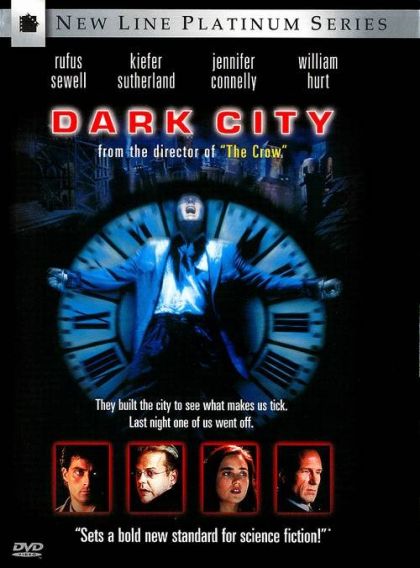

A man struggles with memories of his past, including a wife he cannot remember, in a nightmarish world with no sun and run by beings with telekinetic powers who seek the souls of humans.
Cast View all
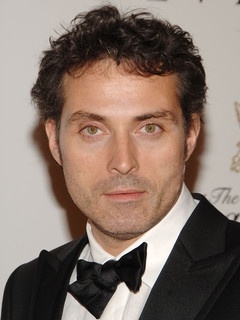
|
Rufus Sewell | John Murdoch |

|
William Hurt | Inspector Frank Bumstead |
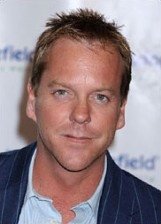
|
Kiefer Sutherland | Dr Daniel Schreber |

|
Jennifer Connelly | Emma Murdoch |
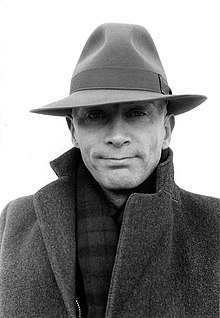
|
Richard O'Brien | Mr Hand |
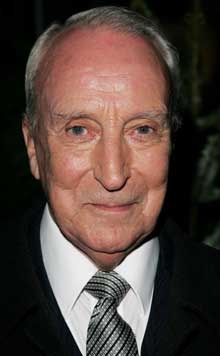
|
Ian Richardson | Mr Book |

|
Bruce Spence | Mr Wall |
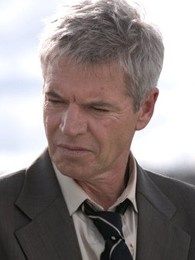
|
Colin Friels | Walenski |
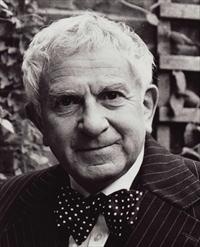
|
John Bluthal | Karl Harris |
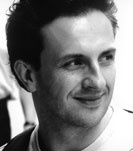
|
Mitchell Butel | Husselbeck |

|
Melissa George | May |
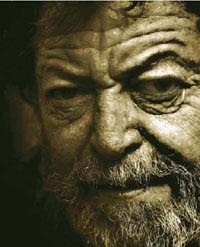
|
Frank Gallacher | Stromboli |

|
Ritchie Singer | Hotel Manager |

|
Justin Monjo | Taxi Driver |

|
Nicholas Bell | Mr Rain |

|
Satya Gumbert | Mr Sleep |

|
Noah Gumbert | Mr Sleep Filming Double |

|
F. Miragliotta | Mr Quick |

|
Peter Sommerfeld | Stranger |

|
Timothy Jones | Stranger |

|
Jeanette Cronin | Stranger |
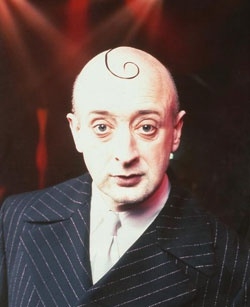
|
Paul Livingston | Assistant Stranger |

|
Michael Lake | Assistant Stranger |
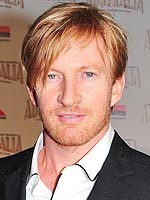
|
David Wenham | Schreber's Assistant |

|
Alan Cinis | Automat Cop |
Crew
| Director | Alex Proyas |

|
| Writer | Alex Proyas, Lem Dobbs, Ricardo Festiva | |
| Producer | Michael De Luca, Barbara Gibbs, Andrew Mason, Alex Proyas, Brian Witten | |
| Musician | Trevor Jones | |
| Photography | Dariusz Wolski | |
Personal
| Quantity | 1 |
|---|---|
| Seen | |
| Added Date | Mar 10, 2012 13:58:29 |
| Modified Date | Jun 12, 2022 00:32:10 |
Edition details
| Screen Ratios | Standard (1.33:1) Theatrical Widescreen (2.35:1) |
|---|---|
| Audio Tracks | Dolby Digital 5.1 [English] Dolby Digital 5.1 [French] |
| Subtitles | English (Closed Captioned) | French | Spanish |
| Layers | Dual side, Single layer |
| Edition Release Date | Feb 02, 2004 |
Notes
Story Synopsis:
In Dark City, when John Murdoch (Rufus Sewell) awakens in a strange hotel room, he learns that he is wanted for a series of brutal murders. But in a city where reality is the ultimate illusion, discovering the truth could prove fatal.
DVD Picture:
The picture quality is excellent on both LaserDiscs and anamorphically enhanced DVD. Images are sharp and detailed, with the DVD delivering a sharper picture with better detail and texture. The picture is stylistically dark, but shadow detail and contrast are nicely presented. There is neither noise or artifacts for a satisfyingly solid and eerie visual experience. The LaserDiscs, and letterbox and anamorphic DVD aspect ratios are framed at 2.35:1.
Soundtrack:
Both the DVD and LaserDisc Dolby® Digital 5.1 discrete soundtrack and the LaserDisc matrix PCM soundtrack are superb. The discrete version does, however, deliver directional surrounds which enhance soundfield dimensionality. Bass extension is deep and powerful to below 25Hz, especially with respect to .1 LFE. The atmospheric music score is well recorded with an expansive soundstage, but dialogue is often forward sounding. The DTS Digital Surround LaserDisc sounds more dynamic overall and resolves low level ambience better and with more clarity.
This Disc Contains The Following WSR-Rated Superb Qualities:
Superb Sound Effects Recording Quality
Superb Music Score Recording Quality
Superb Color Fidelity
Reference Quality
MOVIE REVIEW
BY ROGER EBERT
"Dark City'' by Alex Proyas is a great visionary achievement, a film so original and exciting, it stirred my imagination like "Metropolis'' and "2001: A Space Odyssey.'' If it is true, as the German director Werner Herzog believes, that we live in an age starved of new images, then "Dark City'' is a film to nourish us. Not a story so much as an experience, it is a triumph of art direction, set design, cinematography, special effects--and imagination.
Like "Blade Runner,'' it imagines a city of the future. But while "Blade Runner'' extended existing trends, "Dark City'' leaps into the unknown. Its vast noir metropolis seems to exist in an alternate time line, with elements of our present and past combined with visions from a futuristic comic book. Like the first "Batman,'' it presents a city of night and shadows, but it goes far beyond ``Batman'' in a richness of ominous, stylized sets, streets, skylines and cityscapes. For once a movie city equals any we could picture in our minds; this is the city "The Fifth Element'' teased us with, without coming through.
The story combines science fiction with film noir--in more ways than we realize and more surprising ways than I will reveal. Its villains, in their homburgs and flapping overcoats, look like a nightmare inspired by the thugs in "M,'' but their pale faces would look more at home in "The Cabinet of Dr. Caligari''--and, frighteningly, one of them is a child. They are the Strangers, shape-changers from another solar system, and we are told they came to Earth when their own world was dying. (They create, in the process, the first space vessel since "Star Wars'' that is newly conceived--not a clone of that looming mechanical vision.)
They inhabit a city of rumbling elevated streamlined trains, dank flophouses, scurrying crowds and store windows that owe something to Edward Hopper's "Nighthawks.'' In this city lives John Murdoch (Rufus Sewell), who awakens in a strange bathtub beneath a swinging ceiling lamp, to blood, fear and guilt. The telephone rings; it is Dr. Schreber (Kiefer Sutherland), gasping out two or three words at a time, as if the need to speak is all that gives him breath. He warns Murdoch to flee, and indeed three Strangers are in the corridor, coming for him.
The film will be the story of Murdoch's flight into the mean streets, and his gradual discovery of the nature of the city and the Strangers. Like many science-fiction heroes, he has a memory shattered into pieces that do not fit. But he remembers the woman he loves, or loved--his wife, Emma (Jennifer Connelly), who is a torch singer with sad eyes and wounded lips. And he remembers ... Shell Beach? Where was that? He sees it on a billboard and old longings stir.
There is a detective after him, Inspector Bumstead (William Hurt). Murdoch is wanted in connection with the murders of six prostitutes. Did he kill them? Like the hero of Franz Kafka's The Trial, Murdoch feels so paranoid he hardly knows. Rufus Sewell plays Murdoch like a man caught in a pinball machine, flipped into danger every time it looks like the game is over.
The story has familiar elements made new. Even the hard-boiled detective, his eyes shaded by the brim of his fedora, seems less like a figure from film noir than like a projection of an alien idea of noir. Proyas and his co-screenwriters, Lem Dobbs and David S. Goyer, use dream logic to pursue their hero through the mystery of his own life. Along the way, Murdoch discovers that he alone, among humans, has the power of the Strangers--an ability to use his mind in order to shape the physical universe. (This power is expressed in the film as a sort of transparent shimmering projection, aimed from Murdoch's forehead into the world, and as klutzy as that sounds, I found myself enjoying its very audacity: What else would mind-power look like?)
Murdoch's problem is that he has no way of knowing if his memories are real, if his past actually happened, if the women he loves ever existed. Those who offer to help him cannot be trusted. Even his enemies may not be real. The movie teasingly explores the question that babies first ask in peek-a-boo: When I can't see you, are you there? It's through that game that we learn the difference between ourselves and others. But what if we're not there, either?
The movie is a glorious marriage of existential dread and slam-bang action. Toward the end, there is a thrilling apocalyptic battle that nearly destroys the city, and I scribbled in my notes: ``For once, a sequence where the fire and explosions really work and don't play just as effects.'' Proyas and his cinematographer, Dariusz Wolski, capture the kinetic energy of great comic books; their framing and foreshortening and tilt shots and distorting lenses shake the images and splash them on the screen, and it's not ``action'' but more like action painting.
Proyas directed ``The Crow'' (1994), the visually inspired film that was almost doomed when its star, Brandon Lee, was killed in an accident. I called that film ``the best version of a comic book universe I've seen,'' but ``Dark City'' is miles beyond it. Proyas' background was in music videos, usually an ominous sign, but not here: His film shows the obsessive concentration on visual detail that's the hallmark of directors who make films that are short and expensive. There's such a wealth on the screen, such an overflowing of imagination and energy. Often in f/x movies the camera doesn't feel free because it must remain within the confines of what has been created for it to see. Here we feel there's no limit.
Is the film for teenage boys and comic book fans? Not at all, although that's the marketing pitch. It's for anyone who still has a sense of wonder and a feeling for great visual style. This film contains ideas and true poignance, a story that has been thought out and has surprises right to the end. It's romantic and exhilarating. Watching it, I realized the last dozen films I'd seen were about people standing around, talking to one another. ``Dark City'' has been created and imagined as a new visual place for us to inhabit. It adds treasure to our notions of what can be imagined.


 English
English  Nederlands
Nederlands  Deutsch
Deutsch  Français
Français  Español
Español  Magyar
Magyar  српски
српски  Dansk
Dansk  Svenska
Svenska  Slovenčina
Slovenčina  Português
Português  Movie Cloud
Movie Cloud Book Cloud
Book Cloud Music Cloud
Music Cloud Comic Cloud
Comic Cloud Game Cloud
Game Cloud